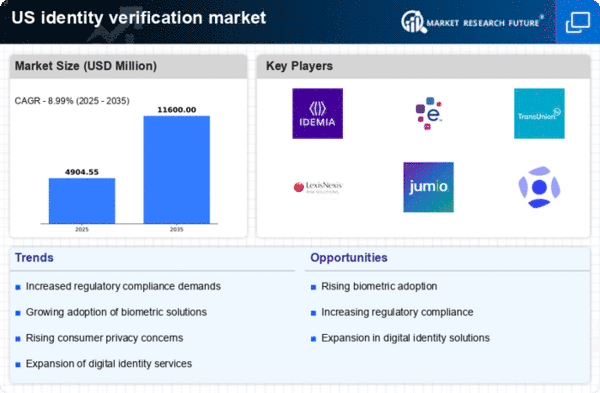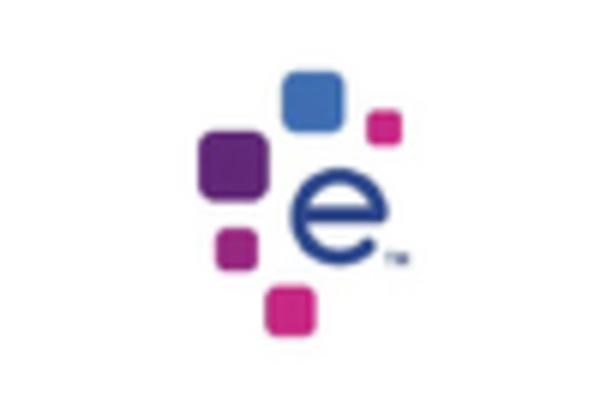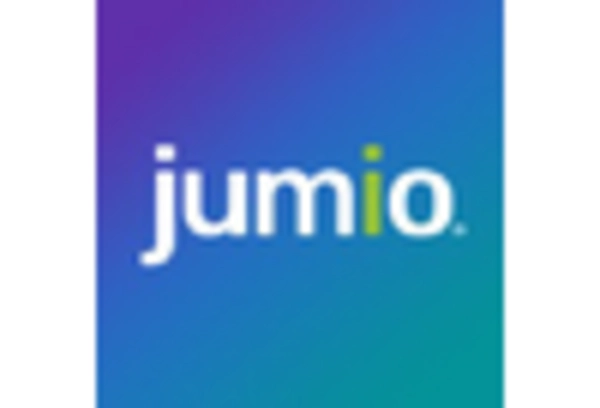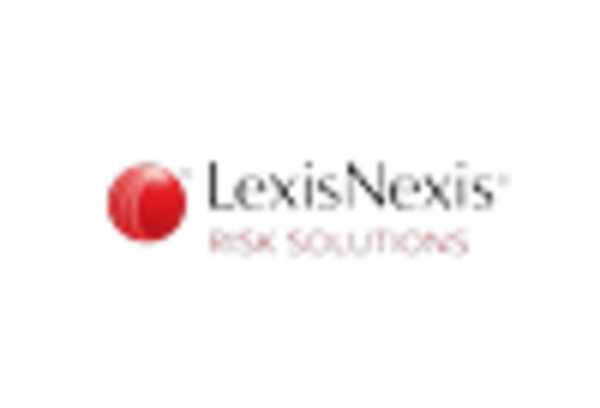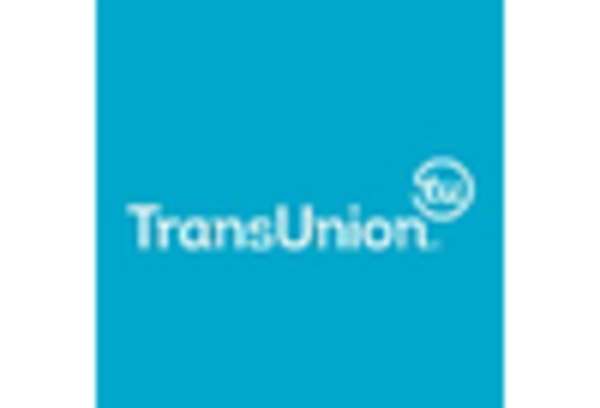E-commerce Expansion
The rapid growth of e-commerce is significantly influencing the identity verification market. As online shopping continues to gain traction, businesses are increasingly required to implement stringent identity verification processes to prevent fraud. In 2025, e-commerce sales in the US are projected to reach approximately $1 trillion, leading to a surge in demand for identity verification solutions. Retailers are particularly focused on ensuring secure transactions and protecting customer data. This trend is driving innovation in the identity verification market, with companies adopting technologies such as digital identity verification and real-time fraud detection. The integration of these solutions not only enhances security but also improves customer trust, further propelling the growth of the identity verification market.
Rising Cybersecurity Threats
The identity verification market is experiencing heightened demand due to the increasing prevalence of cybersecurity threats. As organizations face sophisticated attacks, the need for robust identity verification solutions becomes paramount. In 2025, it is estimated that cybercrime will cost businesses over $10 trillion annually, prompting companies to invest in advanced identity verification technologies. This trend is particularly evident in sectors such as finance and healthcare, where data breaches can have severe consequences. Consequently, the identity verification market is likely to expand as businesses seek to mitigate risks associated with identity fraud and unauthorized access. Enhanced security measures, including biometric authentication and multi-factor verification, are becoming standard practices, thereby driving growth in the identity verification market.
Increased Mobile Transactions
The proliferation of mobile devices is reshaping the identity verification market landscape. With more consumers opting for mobile transactions, businesses are compelled to adopt effective identity verification measures to safeguard sensitive information. In 2025, mobile payment transactions in the US are expected to exceed $1 trillion, underscoring the necessity for secure identity verification solutions. As mobile applications become a primary channel for financial services, the identity verification market is witnessing a shift towards mobile-friendly verification methods, such as biometric authentication and one-time passwords. This evolution not only enhances security but also aligns with consumer preferences for convenience and speed, thereby driving growth in the identity verification market.
Growing Demand for Remote Services
The increasing reliance on remote services is a key driver of the identity verification market. As businesses transition to remote operations, the need for secure identity verification processes has become more pronounced. In 2025, it is anticipated that remote work will account for over 30% of the US workforce, necessitating effective identity verification solutions to ensure secure access to sensitive information. This trend is particularly relevant in sectors such as finance and healthcare, where compliance with regulations is critical. The identity verification market is responding by offering solutions that facilitate secure remote onboarding and authentication, thereby addressing the challenges posed by remote service delivery. This shift is likely to sustain growth in the identity verification market as organizations prioritize security in their remote operations.
Technological Advancements in Verification Solutions
Technological advancements are playing a pivotal role in shaping the identity verification market. Innovations such as artificial intelligence, machine learning, and blockchain technology are enhancing the capabilities of identity verification solutions. In 2025, it is projected that the market for AI-driven identity verification will grow by over 25%, reflecting the increasing reliance on technology to streamline verification processes. These advancements enable businesses to improve accuracy, reduce fraud, and enhance user experience. The identity verification market is witnessing a shift towards automated solutions that can quickly adapt to emerging threats. As organizations seek to leverage technology for competitive advantage, the demand for sophisticated identity verification solutions is likely to continue its upward trajectory.


